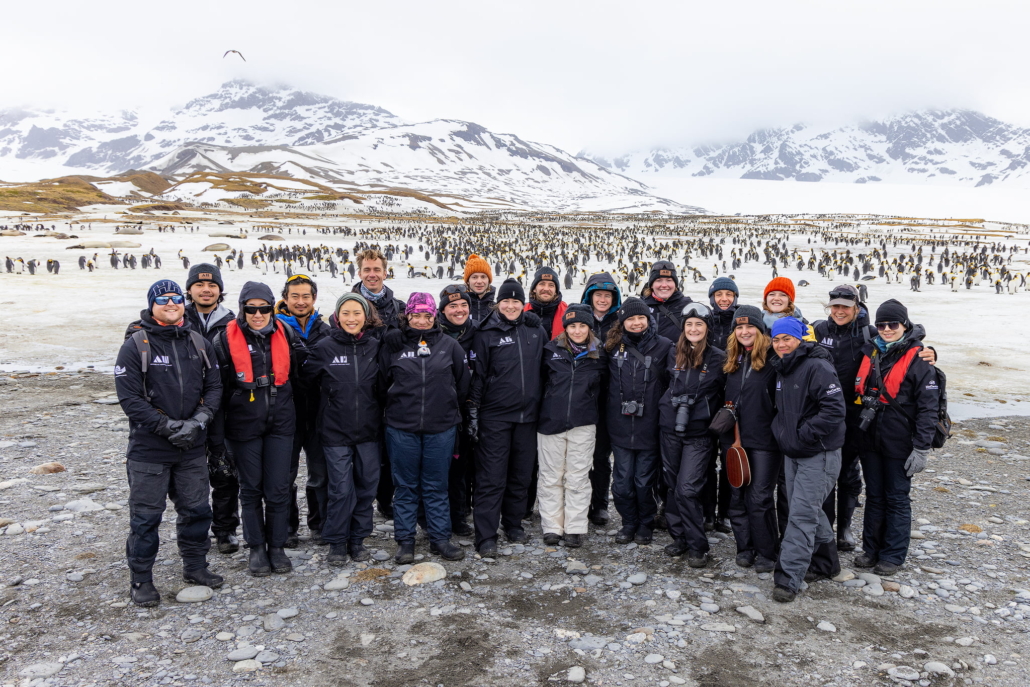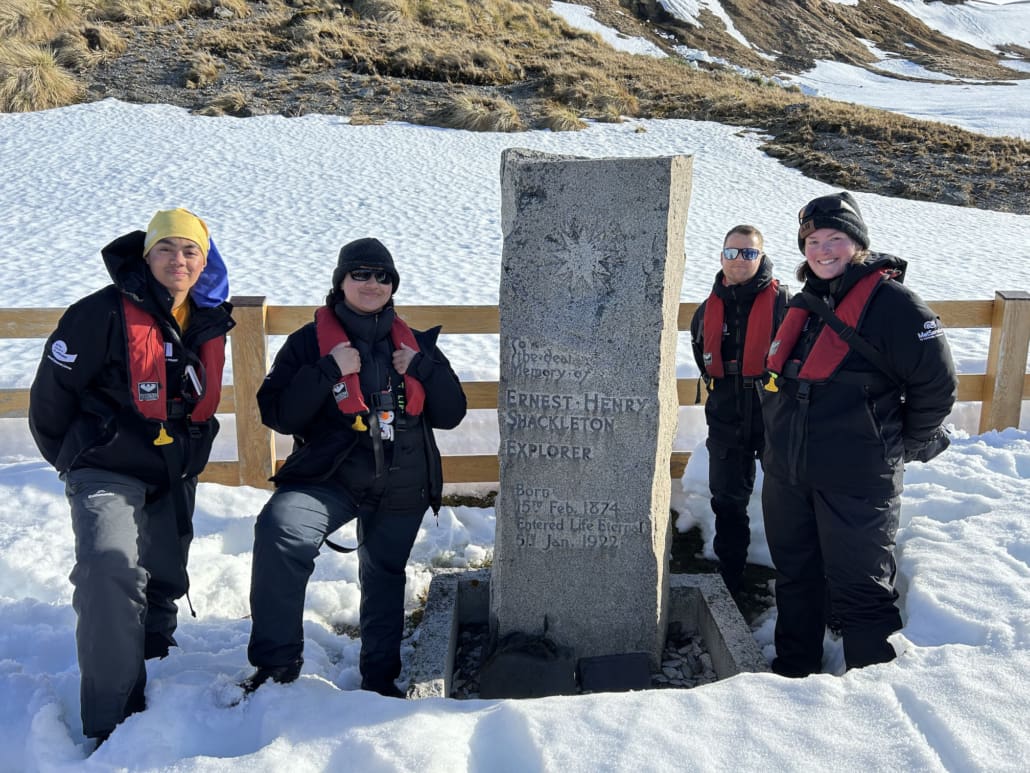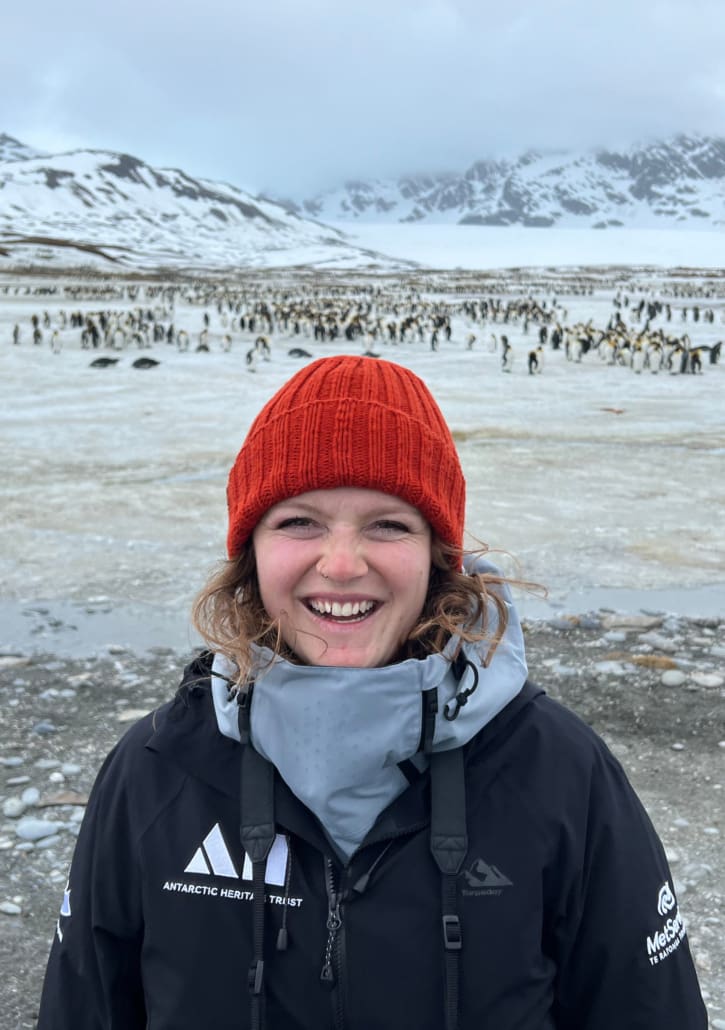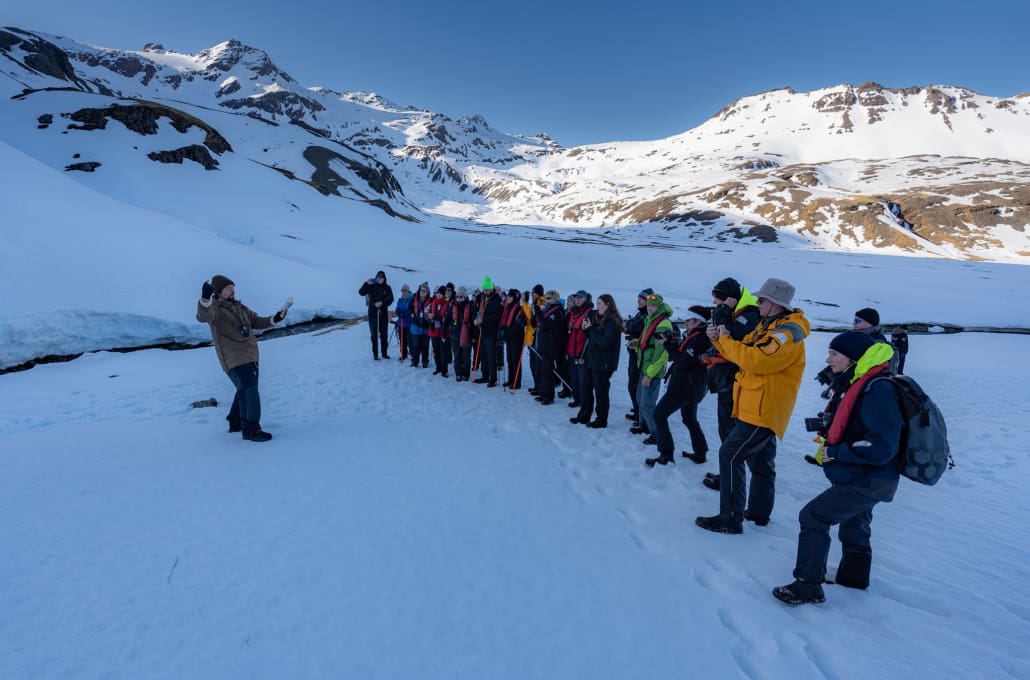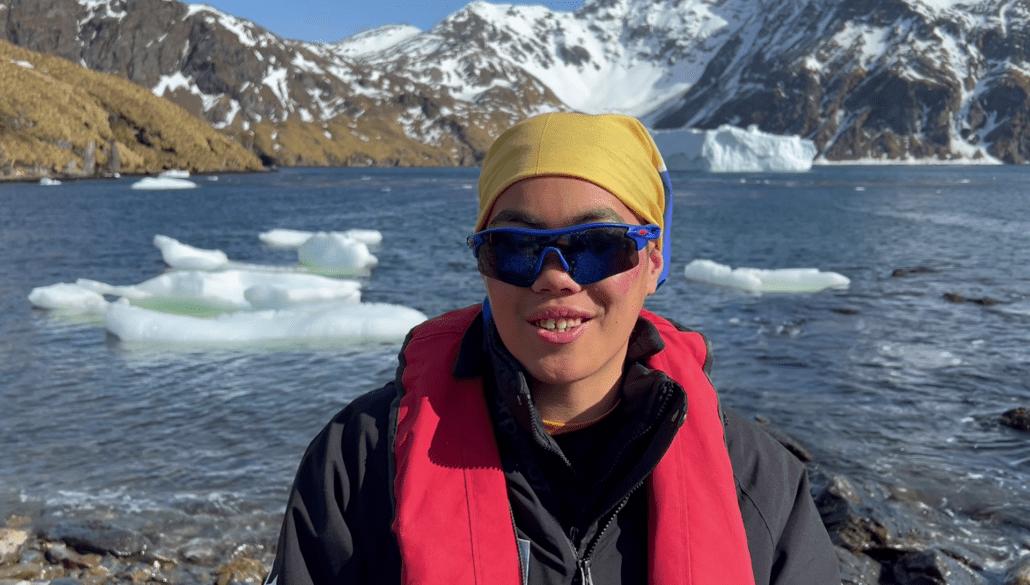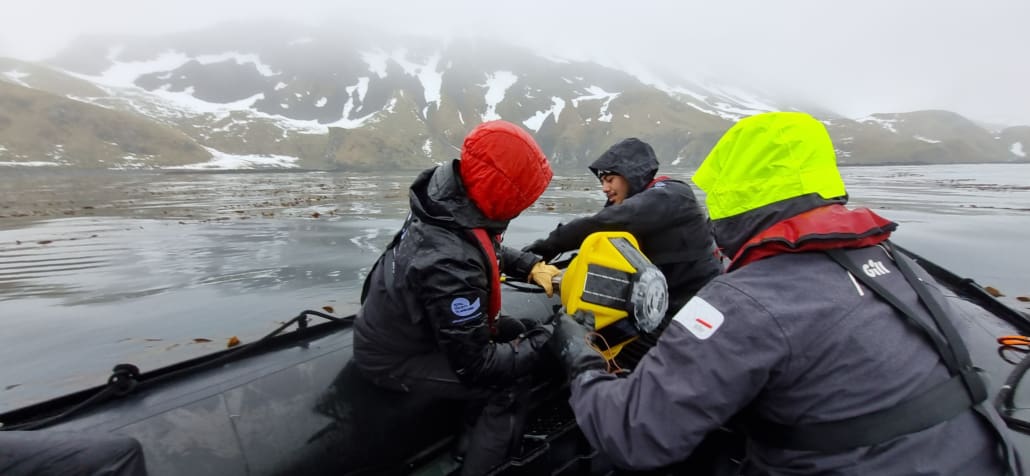Connections Create Life-changing Experience in South Georgia
Twenty-two young New Zealanders travelled with the Trust to South Georgia in October 2023 for our ninth Inspiring Explorers Expedition™ as part of the Shackleton Centenary Year Expedition.
To honour the centenary year of Sir Ernest Shackleton’s final expedition, the Quest, and the end of the heroic-era of Antarctic exploration, our Inspiring Explorers™ were joined by 59 Trust supporters from around the world. The group met in Punta Arenas, Chile before travelling to the Falkland Islands to embark their ship the Magellan Explorer. The voyage across the Scotia Sea to South Georgia took two and a half days, and once there, the team explored twelve different locations over seven days.
Connections were at the heart of this life-changing expedition, which connected the team with Sir Ernest Shackleton’s legacy – intrinsically linked to the remarkable island of South Georgia. By pushing themselves outside their comfort zone in many ways, the Inspiring Explorers™ took lessons from the explorer mindset Shackleton and his team embodied.
The Trust would like to thank Inspiring Explorers™ Programme Partners MetService and Royal Society Te Apārangi and Inspiring Explorers™ Fund donors. Thanks also to supporter TrackMe NZ, expedition operator Antarctica21 and booking agent Wild Earth Travel.
Trust Executive Director Francesca Eathorne said it was moving to visit Shackleton’s final resting place at the small cemetery in Grytviken. “Standing at his grave, I thought about how we still care for Shackleton’s Antarctic home – over 100 years later. So many people gave money and time to conserve this iconic heritage site – signalling its importance as a touchstone of discovery and exploration. Now we are connecting the next generation with Shackleton’s legacy – it was a poignant moment.”
The Inspiring Explorers™ also deeply connected with the awe-inspiring place they voyaged to – the jaw dropping landscape, the extremes of weather and South Georgia’s taonga (treasured) species which includes penguins, seals and majestic birdlife. The team were heartened to learn of the recovery of South Georgia’s biodiversity, thanks to conservation efforts to eradicate pests and invasive flora on land and protect marine biodiversity. They also came face to face, however, with the visible impact of climate change, seeing valleys that were once filled with huge tidewater glaciers.
This special expedition has left an indelible mark on the hearts and minds of our Inspiring Explorers™ and created ambassadors for the legacy the Trust cares for.
The sea has always held a special place in Inspiring Explorer Kelsey Waghorn’s heart. After studying marine science, Kelsey spent five years working on boats for White Island Tours, however on 9 December 2019 New Zealand’s Whakaari/White Island erupted, leaving her with full thickness burns to 45 percent of her body. Kelsey says the expedition has realigned the trajectory of her life after a ‘lightning bolt moment’.
“Despite telling myself I wouldn’t go back to working in extreme environments, it is actually where I am supposed to be, and where I need to be. For the first time in years, I have direction and a reignited passion for the ocean. It’s changed my life in the most incredible way,” said Kelsey.
The team also formed impactful and lasting connections with the Trust’s special guests, Trust Patron Rt Hon Helen Clark ONZ and Nigel Watson NZAM Trust Emeritus Executive Director. Ms Clark said, “The opportunity to visit a place that is so inextricably connected with Ernest Shackleton and his legacy of polar exploration was very special. To see the group of young explorers developing their ‘explorer mindset’ by being curious, stepping out of their comfort zone daily, and finding unique ways to share their stories was impressive.”
A team of four Inspiring Explorers™ were hoping to make a guided attempt of South Georgia’s Mount Worsley, however poor weather made the ascent impossible. Instead, a permit was obtained to ascend Mount Hodges, in the mountain range behind Grytviken, which the team completed successfully.
Inspiring Explorer Millie Mannering says it was incredible for the team to put their crampons on and explore some of South Georgia’s coastal mountains. “From the summit we could see right into the interior of the island. We watched as a weather system came through and enveloped huge, towering peaks with crazy sharp ridgelines. It looked foreboding, exciting and inspiring,” said Millie.
During the expedition, the team worked on group outreach projects. The science team, led by Programme Partner MetService’s Peter Fisher, and Inspiring Explorer and MetService Meteorologist Kelly Davenport, used both modern and heroic-era methods to make weather observations and gather data. In the process, the team learned about the connectedness of the world’s weather systems and why it’s important for us in New Zealand to understand what is driving weather in other remote locations. Porohu Hagai Noa, one of two Inspiring Explorers from the AIMHI network of schools in South Auckland, said, “I enjoyed collecting weather data just like Shackleton’s crew did, to help us understand the world we live in and how it is changing.”
The education team, led by Inspiring Explorer and Programme Partner Royal Society Te Apārangi representative Kaitlyn Martin, worked to develop and test an educational card game for school students focused on Shackleton’s Endurance survival story and the wildlife, environment, and weather he would have encountered crossing South Georgia in 1916.
The video team worked on a short film about the expedition. The visual arts team began work on artworks inspired by the expedition which will be exhibited in 2024, and the children’s book team worked on ideas for a picture book with themes of conservation, teamwork, collaboration and hope.
As they complete their projects back at home, our Inspiring Explorers™ will be drawing on the connections they formed to South Georgia’s history and environment. Outreach will be shared with the Trust’s global audience over the coming months.

